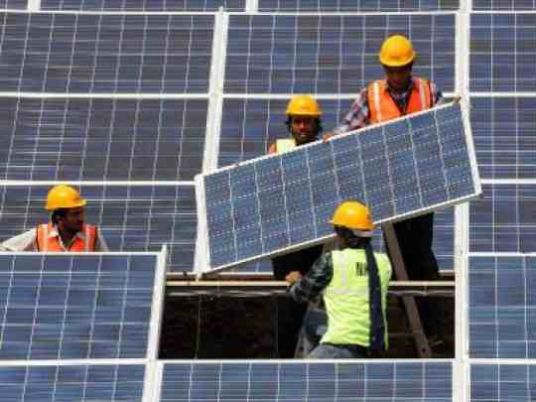Fossil fuel reserves are rapidly decreasing consequently environment specialists and governments worldwide are fetching for alternative sources of energy to comply with the demand.
One of the directions Egypt is looking into is solar energy just like other neighboring North African countries. Egypt is still at a primary phase in collecting solar energy but interesting small-scale initiatives have been implemented while the government is considering the creation of a research centre on its ground dedicated to explore the great potential at hand.
Egypt has the particularity to be “extremely rich in solar energy as its whole geographic area has a major exposure to the sun,” explains Zakia Kafafi (http://www.nsf.gov/mps/dmr/staff/zkafafi.jsp)director of the Material Research Division at the National Science Foundation, USA, who spoke during a lecture at the Journalist Syndicate last week.
“Only 10% of the territory is inhabited, which leaves tremendous space for the installation of large-scale solar plants all over the country,” she added. Kafafi met with Mubarak during his last official visit to the United States where she disclosed the idea of establishing an international centre of excellence for all sources of solar energy in Egypt.
“We want to establish a strong partnership between the Egyptian scientists, engineers and entrepreneurs and their global counterparts for accelerating the research,” Kafafi explained during a lecture given which was entitled “The Future of Solar Energy in Egypt.”
The operating model of the research centre she has in mind is to establish “a cooperative relationship between governmental agencies, universities’ research labs, NGOs and the private sector—industry and investors.”
Kafafi’s research on solar energy focuses on plastic solar tape, a flexible thin photovoltaic film that can charge electronic devices using solar fibers. This tape converts light into electricity and can also be woven on clothes. “It is cheap, comfortable and easy to fabricate,” adds the researcher. This technology has already been implemented in the United States by Sony which produces a solar TV at the cost of USD 2300 and which can operate between 20,000 and 40,000 hours.
Former Transportation Minister Essan Sharaf was also in attendance at the lecture and pointed out that “Egypt’s competitiveness with other countries depends on the creativity of its research,” before adding that “scientific research is a matter of national security.”
While the above scientific research centre remains at the initial stages of conceptualization, the construction of solar panels and biogas digesters in the area of Manshiyet Nasr is an initiative that is already underway.
Hannah Fathi Rostom, an agricultural engineer and an energy specialist from Manshiyet Nasr installed a biogas digester on his rooftop and solar panels.
In order to built the three rooftop solar panels that provide his house with hot water he used recycled material he found in the trash collected in the area.
“With the organic waste we collect every day at home, we can produce up to two hours of gas for cooking or heating water daily,” he adds.
The system is rudimentary and works amazingly well: the ordinary kitchen waste is placed in a tube that goes into the lower part of the tank where it is decomposed by bacteria that swarm in organic waste.
The methane gas that is produced gathers at the upper part of the tank, pushing the upper tank upwards and indicating that the maximum level of gas has been reached. Then a hose collects the gas and brings it to the stove, where cooking can start.
“Egypt is the perfect ground for implementing these biogas tanks, especially in densely populated areas because it provides energy while making use of the garbage,” he explains.
“I started building the biogas digester on my rooftop about a year ago, when the swine flu crisis started,” Fathi explained during a lecture entitled “Affordable Solutions for Clean Sustainabel Energy Systems” held at the headquarters of the NGO Nhadet el-Mahroussa.
“I am not going to say that this system will encourage the garbage collectors to start picking up organic waste again, but at least it offers a clean solution to get rid of waste while producing energy,” he added.
So far, four of these biogas digesters have been built in the area of Manshiyet Nasr, and one in Darb el-Ahmar by Fathi and other members of the Solar CITIES (Connecting Community Catalysts and Integrating Technologies for Industrial Ecology Systems) team.
Fathi explained during his lecture that the biogas digester he installed on his rooftop was thoroughly inspired by a system developed in an Indian market, where the daily organic waste is gathered and fed to a large-scale digester that provides enough electricity to light the market at night.
An engineer in the audience asked Fathi whether he plans to connect different tanks together to produce a bigger amount of energy, and Fathi admitted that “we would like to do that, but we will need funding.”
Solar energy is too often related to massive investements that may scare off governments. On the other hand, the fact that individuals in Egypt are creative enough to come up with affordable, small-scale and somewhat improvised solutions, proves that one does not need to buy a fancy solar panel to run a household.




